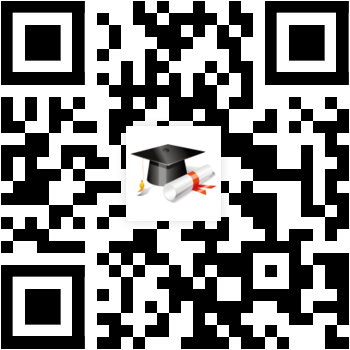2010年MBA英語模擬試題(三)
來源:在職研究生招生信息網 發布時間:2011-10-25 10:13:29
PartⅠClose test
Directions: There are 20 blanks in the following passage. For each numbered blank, there are 4 choices marked A, B, C and D. Choose the best one and mark your answer on the ANSWER SHEET with a single line through the center. (10points)
An important factor of leadership is attraction. This does not mean attractiveness in the ordinary sense, for that is a born quality 1 our control. The leader has, nevertheless, to be a magnet; a central figure towards whom people are 2 .Magnetism in that sense depends, first of all, 3 being seen. There is a type of authority which can be 4 from behind closed doors, but that is not leadership. 5 there is movement and action, the true leaders is in the forefront and may seem, indeed, to be everywhere at once. He has to become a legend; the 6 for anecdotes, whether true or 7 ; character. One of the simplest devices is to be absent 8 the occasion when the leader might be 9 to be there, enough in itself to start a rumor about the vital business 10 has detained him. To 11 up for this, he can appeal when least expected, giving rise to another story about the interest he can display 12 things which other folks might 13 as trivial. With this gift for 14 curiosity the leader always combines a reluctance to talk about himself. His interest is 15 in other people he questions them and encourages them to talk and then remembers all 16 is relevant. He never leaves a party 17 he has mentally field a minimum dossier(檔案) on 18 present, ensuring that he knows 19 to say when he meets them again. He is not artificially extrovert but he would usually rather listen 20 talk. Others realize gradually that his importance needs no proof.
1. A. in B. beyond C. under D. of
2. A. united B. dragged C. drawn D. hauled
3. A. at B. in C. about D. on
4. A. looked B. recognized C. exercised D. respected
5. A. Where B. Though C. Because D. When
6. A. minor role B. subject C. joke D. supplement
7. A. incorrect B. wrong C. false D. bad
8. A. in B. on C. at D. under
9. A. refused B. suspected C. expelled D. expected
10. A. which B. when C. what D. where
11. A. take B. make C. come D. give
12. A. on B. in C. about D. at
13. A. look B. think C. view D. deal
14. A. decreasing B. possessing C. inspiring D. urging
15. A. directly B. obscurely C. scarcely D. plainly
16. A. which B. that C. what D. one
17. A. after B. when C. until D. before
18. A. someone B. everyone C. men D. one
19. A. when B. where C. which D. what
20. A. and B. or C. than D. but
PartⅡReading Comprehension
SectionA
Directions: There are 4 passages in this part .Each of the passages is followed by 5 questions or unfinished statements. For each of them there are 4 choices marked A, B, C and D. Choose the best one and mark your answer on the ANSWER SHEET.(40points)
Passage One
As any homemaker who has tried to keep order at the dinner table knows, there is far more to a family meal than food. Sociologist Michael Lewis has been studying 50 families to find out just how much more.
Lewis and his co-workers carried out their study by videotaping the families while they ate ordinary meals in their own homes. They found that parents with small families talk actively with each other and their children. But as the number of children gets larger, conversation gives way to the parents’ efforts to control the loud noise they make. That can have an important effect on the children. “In general the more question-asking the parents do, the higher the children’s IQ scores,” Lewis says. “And the more children there are, the less question-asking there is. ”
The study also provides an explanation for why middle children often seem to have a harder time in life than their siblings. Lewis found that in families with three or four children, dinner conversation is likely to center on the oldest child, who has the most to talk about, and the youngest, who needs the most attention. “Middle children are invisible,” says Lewis. “When you see someone get up from the table and walk around during dinner, chances are that it’s the middle child. ” There is, however, one thing that stops all conversation and prevents anyone from having attention: “When the TV is on,” Lewis says, “dinner is a non-event. ”
21. The writer’s purpose in writing the text is to .
A. show the relationship between parents and children
B. teach parents ways to keep order at the dinner table
C. report on the findings of a study
D. give information about family problems
22. Parents with large families ask fewer questions at dinner because .
A. they are busy serving food to their children
B. they are busy keeping order at the dinner table
C. they have to pay more attention to younger children
D. they are tired out having prepared food for the whole family
23. By saying “Middle children are invisible” in paragraph 3, Lewis means that middle children .
A. have to help their parents to serve dinner
B. get the least attention from the family
C. are often kept away from the dinner table
D. find it hard to keep up with other children
24. Lewis’ research provides an answer to the question .
A. why TV is important in family life
B. why parents should keep good order
C. why children in small families seem to be quieter
D. why middle children seem to have more difficulties in life
25. Which of the following statements would the writer agree to?
A. It is important to have the right food for children.
B. It is a good idea to have the TV on during dinner.
C. Parents should talk to each of their children frequently.
D. Elder children should help the younger ones at dinner
Passage Two
Taiwan police cannot decide whether to treat it as an extremely clever act of stealing or an even cleverer cheat (詐騙). Either way, it could be the perfect crime (犯罪), because the criminals are birds-horning pigeons!
The crime begins with a telephone message to the owner of a stolen car: if you want the car back, pay up then. The car owner is directed to a park, told where to find a bird cage and how to attach money to the neck of the pigeon inside. Carrying the money in a tiny bag, the pigeon flies off.
There have been at least four such pigeon pick-ups in Changwa. What at first seemed like the work of a clever stay-at-home car thief, however, may in fact be the work of an even lazier and more inventive criminal mind-one that avoids (避免)not only collecting money but going out to steal the car in the first place. Police officer Chen says that the criminal probably has played a double trick: he gets money for things he cannot possibly return. Instead of stealing cars, he lets someone else do it and then waits for the car-owner to place an ad (啟事) in the newspaper asking for help.
The theory is supported by the fact that, so far, none of the stolen cars have been returned. Also, the amount of money demanded-under 3,000 Taiwanese dollars-seems too little for a car worth many times more.
Demands for pigeon-delivered money stopped as soon as the press reported the story. And even if they start again, Chen holds little hope of catching the criminal. “We have more important things to do,” he said.
26. After the car owner received a phone call, he .
A. went to a certain pigeon and put some money in the bag it carried
B. gave the money to the thief and had his car back in a park
C. sent some money to the thief by mail
D. told the press about it
27. The “lazier and more inventive” criminal refers to .
A. the car thief who stays at home
B. one of those who put the ads in the paper
C. one of the policemen in Changwa
D. the owner of the pigeons
28. The writer mentions the fact that “none of the stolen cars have been returned” to show .
A. how easily people get fooled by criminals
B. what Chen thinks might be correct
C. the thief is extremely clever
D. the money paid is too little
29. The underlined word “they” in the last paragraph refers to .
A. criminals B. pigeons
C. the stolen cars D. demands for money
30. We may infer from the text that the criminal knows how to reach the car owners because .
A. he reads the ads in the newspaper
B. he lives in the same neighborhood
C. he has seen the car owners in the park
D. he has trained the pigeons to follow them
Passage Three
Last August, Joe and Mary Mahoney began looking at colleges for their 17-year-old daughter, Maureen. With a checklist of criteria in hand, the Dallas family looked around the country visiting half a dozen schools. They sought a university that offered the teenager’s intended major, one located near a large city, and a campus where their daughter would be safe.
“The safety issue is a big one,” says Joe Mahoney, who quickly discovered he wasn’t alone in his worries. On campus tours other parents voiced similar concerns, and the same question was always asked: what about crime? But when college officials always gave the same answer-“That’s not a problem here,” Mahoney began to feel uneasy.
“No crime whatsoever?” comments Mahoney today. “I just don’t buy it. ” Nor should he: in 1999 the U. S. Department of Education had reports of nearly 400,000 serious crimes on or around our campuses. “Parents need to understand that times have changed since they went to college,” says David Nichols, author of Creating a Safe Campus. “Campus crime mirrors the rest of the nation. ”
But getting accurate information isn’t easy. Colleges must report crime statistics by law, but some hold back for fear of bad publicity, leaving the honest ones looking dangerous. “The truth may not always be obvious,” warns S. Daniel Carter of Security on Campus, Inc, the nation’s leading campus safety watchdog group.
To help concerned parents, Carter promised to visit campuses and talk to experts around the country to find out major crime issues and effective solutions.
31. The Mahoneys visited quite a few colleges last August .
A. to express the opinions of many parents
B. to choose a right one for their daughter
C. to check the cost of college education
D. to find a right one near a large city
32. It is often difficult to get correct information on campus crime because some colleges .
A. receive too many visitors
B. mirror the rest of the nation
C. hide the truth of campus crime
D. have too many watchdog groups
33. The underlined word “buy” in the third paragraph means .
A. mind B. admit
C. believe D. expect
34. We learn from the text that “the honest ones” in the fourth paragraph most probably refers to colleges .
A. that are protected by campus security
B. that report campus crime by law
C. that are free from campus crime
D. that enjoy very good publicity
35. What is the text mainly about?
A. Exact campus crime statistics.
B. Crimes on or around campuses.
C. Effective solutions to campus crime.
D. Concerns about kids’ campus safety.
上一篇: 2010年MBA英語模擬試題(二)





















